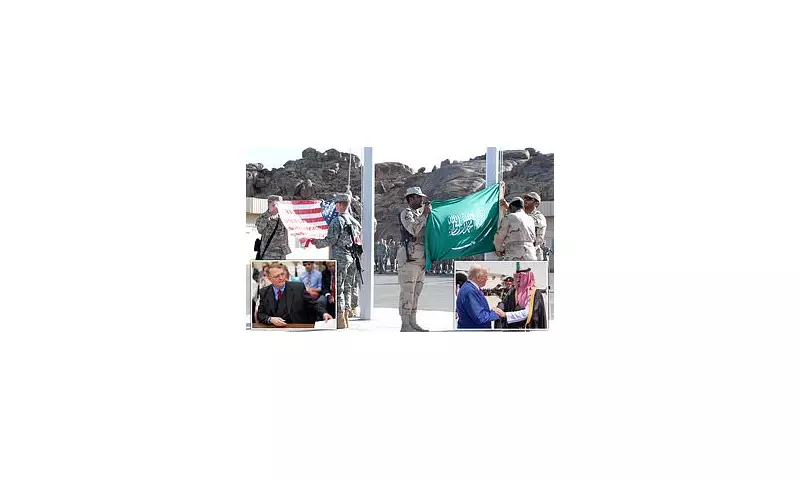
A retired US Army Lieutenant Colonel has issued a stark warning against forging a sweeping defence pact with Saudi Arabia, branding the proposed agreement a 'wildly disproportionate' commitment that risks dragging America into another Middle East conflict.
A Veteran's Fear: Repeating Past Mistakes
In an exclusive interview, Daniel Davis, a veteran Army officer who served multiple tours in Iraq and Afghanistan, slammed the push for a formal US-Saudi security framework. 'This would be a costly and dangerous mistake,' Davis told the Daily Mail. 'We don't need to provide security for Saudi Arabia. They can provide their own. They're definitely wealthy enough. They don't need us.'
Davis, who blew the whistle on US military failures in Afghanistan back in 2012, fears the proposed pact would see American troops, dollars, and credibility once again underwriting another nation's problems. His 2012 report, which accused senior military leaders of misleading the public about the war's progress, caused an uproar in Washington and cemented his reputation as a truth-teller.
The Deal on the Table: Arms, AI and Nuclear Tech
The warning comes as US and Saudi officials are locked in frantic negotiations ahead of a high-stakes meeting at the White House on Tuesday. President Donald Trump is set to host Saudi Crown Prince Mohammed bin Salman (MBS), with both sides hoping to finalise a series of deals encompassing:
- Security and a formal defence framework
- Artificial intelligence cooperation
- Civilian nuclear technology
- A massive weapons package, including F-35 fighter jets
Trump is seeking to capitalise on a $600 billion Saudi investment pledge made during his visit to the kingdom in May. For Riyadh, the centrepiece would be a public guarantee of US military support, acting as the ultimate deterrent against Iran and shielding MBS's Vision 2030 economic plan.
Political Baggage and a 'Wildly Disproportionate' Bargain
However, the proposed agreement faces significant political headwinds in Washington. A formal treaty would require Senate approval, an uphill battle given bipartisan anger over Saudi Arabia's human rights record, the war in Yemen, and the 2018 murder of journalist Jamal Khashoggi.
The version now under discussion reportedly mirrors the model used with Qatar—enacted by executive order and not requiring Senate ratification—meaning it could be reversed by future presidents. Even this scaled-down pact alarms Davis. 'Anytime you get into a security arrangement where you're providing Article Five–type obligations, it's got to be a two-way street,' he argued. 'I don't see that here.'
A key US demand is for Saudi Arabia to normalise relations with Israel by joining the Abraham Accords. While Trump has predicted this would happen 'very soon,' MBS has doubled down, stating there will be no normalisation without a credible path to Palestinian statehood. For Davis, this makes the defence deal an unacceptable bargain. 'Even if you say it's a carrot to bring about Saudi–Israeli normalisation, it's still a bad deal,' he said. 'It's wildly out of proportion to what the benefit would be for our country.'
Davis points to the 2019 drone and missile strike on Saudi oil facilities as proof the kingdom can handle its own crises. 'If we'd had a treaty back then, it could have forced us into a war,' he cautioned, highlighting the exact scenario he believes America must avoid. He contends that the old logic of the Carter Doctrine—that safeguarding Gulf oil is a vital US interest—no longer holds because America now produces more oil than anyone else.
As the Trump-MBS meeting approaches, the outlines of a new partnership are clear: strong on symbolism but heavy with political risk. Davis's final warning, borne from hard experience, is that the American people will ultimately pay the price for such an agreement, potentially getting sucked into a conflict from which it could take decades to extricate itself.





